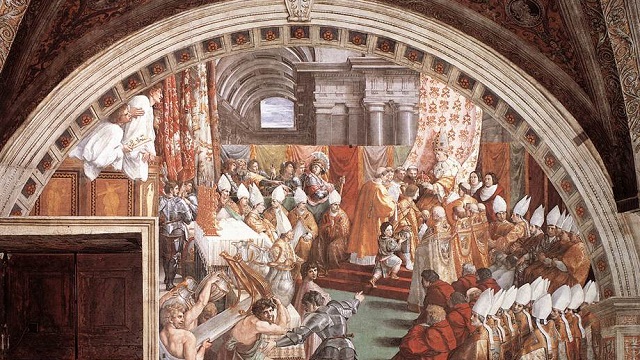Sunday, 28 January is the Feast of Saint Carolus Magnus, also known Charlemagne, Karl der Grosse, and Carl the Great. While he is famous for his contributions to the Roman Catholic Church — he is Blessed, which is one step below sainthood — he is also known for military, education, writing, political, and economic reforms. He is of course a Saint of Ecclesia Gnostica Catholica, and The Invisible Basilica of Sabazius tells us:
Charlemagne was a great conqueror, statesman and legislator, a pious christian and a patron of learning, and was one of the principle forces in the civilization of barbarian Europe. From his capital at Aix-la-Chapelle, now Aachen, in western Germany, he battled the Saracens of Spain, the Saxons of Hanover and Holland, and the Huns and Slavs of the East, ultimately uniting most of Europe in a single great state loyal to the Pope. He adopted as his ensign the double-headed eagle, symbolic of the reunion of the divided Roman Empire. He established an academy to oversee the development of schools throughout Europe, but the enlightenment of Charlemagne’s reign disappeared quickly after his death in the feudalism of his degenerate successors.
According to Einhard’s The Life of Charlemagne, “His meals ordinarily consisted of four courses, not counting the roast, which his huntsmen used to bring in on the spit; he was more fond of this than of any other dish.” Einhard adds, “He was so moderate in the use of wine and all sorts of drink that he rarely allowed himself more than three cups in the course of a meal. In summer after the midday meal, he would eat some fruit, drain a single cup, put off his clothes and shoes, just as he did for the night, and rest for two or three hours.”
Based on Einhard’s description, here is a proposed feast menu for Carolus Magnus:
Learn more about Carolus Magnus at the sources below.

